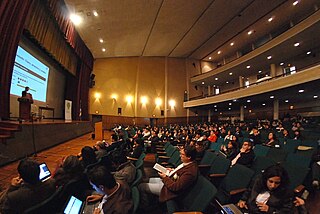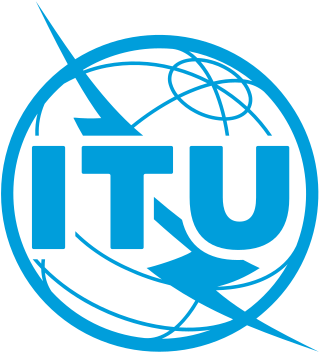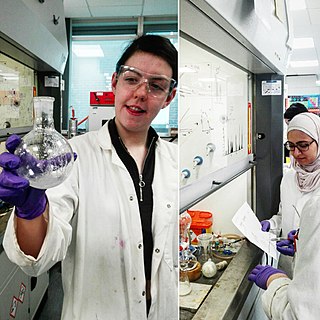Related Research Articles

Foreign relations of Kazakhstan are primarily based on economic and political security consideration. The Nazarbayev administration has tried to balance relations with Russia and the United States by sending petroleum and natural gas to its northern neighbor at artificially low prices while assisting the U.S. in the War on Terror. Kazakhstan is a member of the United Nations, Collective Security Treaty Organization, Organization for Security and Co-operation in Europe, North Atlantic Cooperation Council, Commonwealth of Independent States, the Shanghai Cooperation Organisation, and NATO's Partnership for Peace program. Kazakhstan established a customs union with Russia and Belarus which eventually became the Eurasian Economic Union. President Nazarbayev has prioritized economic diplomacy into Kazakhstan's foreign policy.

The University for Peace (UPEACE) is an international university and intergovernmental organization established as a treaty organisation by the United Nations General Assembly in 1980. The university offers postgraduate, doctoral, and executive programmes related to the study of peace and conflict, environment and development, and international law.

World Water Day is an annual United Nations (UN) observance day held on the 22nd of March that highlights the importance of fresh water. The day is used to advocate for the sustainable management of freshwater resources. The theme of each year focuses on topics relevant to clean water, sanitation and hygiene (WASH), which is in line with the targets of Sustainable Development Goal 6. The UN World Water Development Report (WWDR) is released each year around World Water Day.

World Book Day, also known as World Book and Copyright Day or International Day of the Book, is an annual event organized by UNESCO to promote reading, publishing, and copyright. The first World Book Day was celebrated on 23 April in 1995, and continues to be recognized on that day. A related event in the United Kingdom and Ireland is observed in March. On the occasion of World Book and Copyright Day, UNESCO along with the advisory committee from the major sectors of the book industry, select the World Book Capital for one year. Each designated World Book Capital City carries out a program of activities to celebrate and promote books and reading. In 2024, Strasbourg was designated as the World Book Capital.

World Food Day is an international day celebrated every year worldwide on October 16 to commemorate the date of the founding of the United Nations Food and Agriculture Organization in 1945. The day is celebrated widely by many other organizations concerned with hunger and food security, including the World Food Programme, the World Health Organization and the International Fund for Agricultural Development. WFP received the Nobel Prize in Peace for 2020 for their efforts to combat hunger, contribute to peace in conflict areas, and for playing a leading role in stopping the use of hunger in the form of a weapon for war and conflict.

The International Day of Peace, also officially known as World Peace Day, is a United Nations-sanctioned holiday observed annually on 21 September. It is dedicated to world peace, and specifically the absence of war and violence, such as might be occasioned by a temporary ceasefire in a combat zone for humanitarian aid access. The day was first established in 1981 and first observed in September 1982 and is kept by many nations, political groups, military groups, and people.

World Usability Day (WUD) or Make Things Easier Day, Established in 2005 by the Usability Professionals Association, occurs annually to promote the values of usability, usability engineering, user-centered design, universal usability, and every user's responsibility to ask for things that work better. The day adopts a different theme each year.

World Telecommunication and Information Society Day is an international day proclaimed in November 2006 by the International Telecommunication Union Plenipotentiary Conference in Antalya, Turkey, to be celebrated annually on 17 May.

The World Academy of Art and Science (WAAS), founded in 1960, is an international non-governmental scientific organization and global network of more than 800 scientists, artists, and scholars in more than 90 countries.

The International Volunteer Day for Economic and Social Development, more commonly referred to as International Volunteer Day (IVD), is an international observance mandated by the UN General Assembly in 1985. It offers an opportunity for volunteer-involving organizations and individual volunteers to promote volunteerism, encourage governments to support volunteer efforts, and recognize volunteer contributions to the achievement of the Sustainable Development Goals (SDGs) at local, national, and international levels. International Volunteer Day is marked and supported by the United Nations Volunteers (UNV) programme. UNV coordinates a campaign to promote IVD every year.
The World Day for Cultural Diversity for Dialogue and Development, sometimes abbreviated World Day for Cultural Diversity, is a United Nations sanctioned observance day for the promotion of diversity and intercultural dialogue. Begun in 2002, it is celebrated on 21 May.

International Jazz Day is an International Day declared by the United Nations Educational, Scientific and Cultural Organization in 2011 "to highlight jazz and its diplomatic role of uniting people in all corners of the globe." It is celebrated annually on April 30. The idea came from jazz pianist and UNESCO Goodwill Ambassador Herbie Hancock. Jazz Day is chaired by Hancock and the UNESCO Director-General. The celebration is recognized on the calendars of both UNESCO and the United Nations.

The International Year of Light and Light-based Technologies 2015 or International Year of Light 2015 was a United Nations observance that aimed to raise awareness of the achievements of light science and its applications, and its importance to humankind. IYL 2015 opening ceremonies was held on 19–20 January 2015 in Paris.
The Declaration and Programme of Action on a Culture of Peace was adopted by the United Nations General Assembly on September 13, 1999. This occurred after ten months of negotiations in the context of preparations for the International Year for the Culture of Peace.
International Day of Education is an annual international observance day held on January 24 and is dedicated to education. On December 3, 2018, the United Nations General Assembly adopted a resolution proclaiming January 24 as International Day of Education, in celebration of the role of education for bringing global peace and sustainable development.

The International Day of Women and Girls in Science is an annual observance adopted by the United Nations General Assembly to promote the full and equal access and participation of women in Science, Technology, Engineering and Mathematics (STEM) fields. The United Nations General Assembly passed resolution 70/212 on 22 December 2015, which proclaimed the 11th day of February as the annual commemoration of the observance. A theme is selected annually to highlight a particular focus and area of discussion around a focus point for gender equality in science.

Sustainable Development Goal 4 is about quality education and is among the 17 Sustainable Development Goals established by the United Nations in September 2015. The full title of SDG 4 is "Ensure inclusive and equitable quality education and promote lifelong learning opportunities for all".

Androulla Kaminara is a former European civil servant who from September 2019 to May 2022 served as the Ambassador and Head of Delegation of the European Union to the Islamic Republic of Pakistan. As such, she was the first female ambassador of the European Union to Pakistan. Before her appointment to the European External Action Service, she joined the European Commission in 1991, where she has served in various Directorates General, including those dealing with technology, communications, development cooperation, international relations, and humanitarian aid.
The World Engineering Day for Sustainable Development is one of the UNESCO international days and is celebrated every 4 March. It was proclaimed by UNESCO General Conference on 25 November 2019, based on a proposal by the World Federation of Engineering Organizations (WFEO).
References
- ↑ "International Day of Light: History, significance and all you need to know". Free Press Journal. Retrieved 2022-09-01.
- ↑ "Explained: Why is the International Day of Light celebrated?". The Indian Express. 2020-05-16. Retrieved 2022-09-01.
- ↑ "International Day of Light". idlight (in French). Retrieved 2022-09-01.
- ↑ "International Day of Light | UNESCO". www.unesco.org. Retrieved 2022-09-01.
- ↑ "International Day of Light | spie.org". spie.org. Retrieved 2022-09-01.
- 1 2 "UNESCO celebrates the 1st International Day of Light". www.unesco.org. 2018-05-11. Retrieved 2023-05-10.
- 1 2 "International Day of Light | American Institute of Physics". www.aip.org. Retrieved 2022-09-01.
- ↑ "International Day of Light 2022: All You Need to Know". News18. 2022-05-16. Retrieved 2023-02-10.